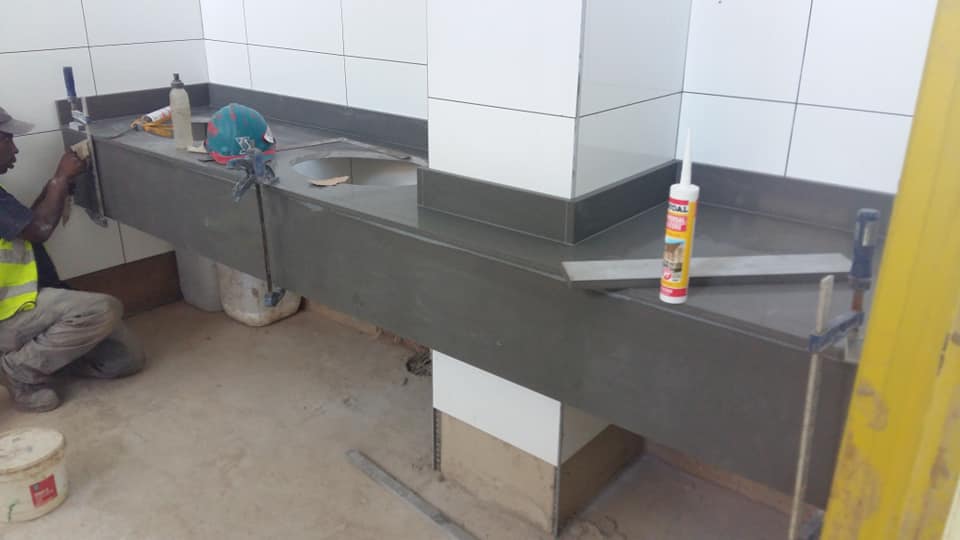Granite is a popular choice for indoor kitchen countertops due to its durability and beauty, but can it be used in outdoor kitchens as well? So, can granite countertops be used in outdoor kitchens?
Granite can be used in outdoor kitchens, but it’s important to consider the climate, location, and maintenance requirements. While it may require additional maintenance, granite is a durable and attractive choice that is resistant to heat and scratching. It’s also important to be careful with outdoor granite countertops and take steps to protect them from damage.
Here’s what you need to know about using granite in outdoor kitchens:
Granite can be used in outdoor kitchens, but there are a few factors to consider before making the decision to use it:
- The climate: Granite is a durable material, but it can be affected by extreme weather conditions such as prolonged sunlight, freezing temperatures, and heavy rain. In areas with extreme weather, granite may not be the best choice for outdoor kitchen countertops.
- The location: If your outdoor kitchen is in a covered area or protected from the elements, granite may be a suitable choice for your countertops. However, if the kitchen is exposed to the elements, it may be more prone to damage from the weather.
- The maintenance: Granite countertops require regular sealing to protect them from stains and damage. In an outdoor kitchen, it’s important to be diligent about sealing the granite to ensure it stays in good condition.
Benefits of using granite in outdoor kitchens
Despite these considerations, there are also many benefits to using granite in outdoor kitchens:
- Durability: Granite is a durable material that is resistant to scratching, chipping and staining. This makes it a good choice for outdoor kitchen countertops that will be subjected to heavy use.
- Beauty: Granite is a natural stone, and each piece is unique with its own distinct pattern and color. This makes it a beautiful and attractive choice for outdoor kitchen countertops.
- Heat resistance: Granite is resistant to heat, making it a good choice for outdoor kitchen countertops where you’ll be placing hot pots and pans. Just be sure to use trivets or hot pads to protect the surface from extreme heat.
Drawbacks of using granite in outdoor kitchens
While there are many benefits to using granite in outdoor kitchens, there are also a few drawbacks to consider:
- Cost: Granite is a high-end material that can be expensive compared to other options such as concrete or tile. This may not be a feasible option for everyone, especially if you’re on a tight budget.
- Maintenance: As mentioned earlier, granite requires regular sealing to protect it from stains and damage. This can be an additional maintenance step that may not be necessary with other materials.
- Susceptibility to damage: Despite its durability, granite can still be susceptible to damage from extreme weather conditions or accidents. It’s important to be careful with your outdoor kitchen countertops and take steps to protect them from damage.
Overall, granite can be a good choice for outdoor kitchen countertops, but it’s important to consider the climate, location, and maintenance requirements before making a decision. While it may be a bit more expensive and require additional maintenance, the durability and beauty of granite can make it a worthwhile investment for some homeowners.













